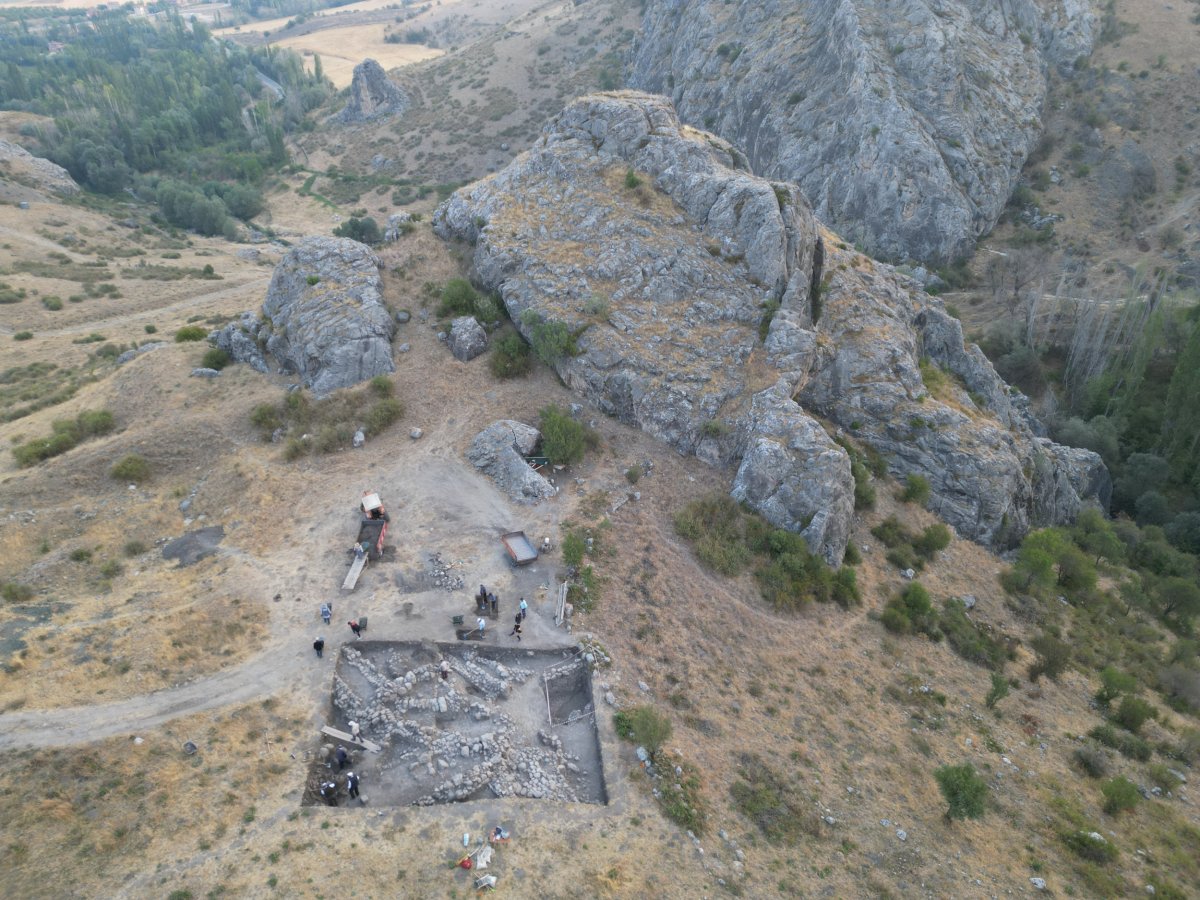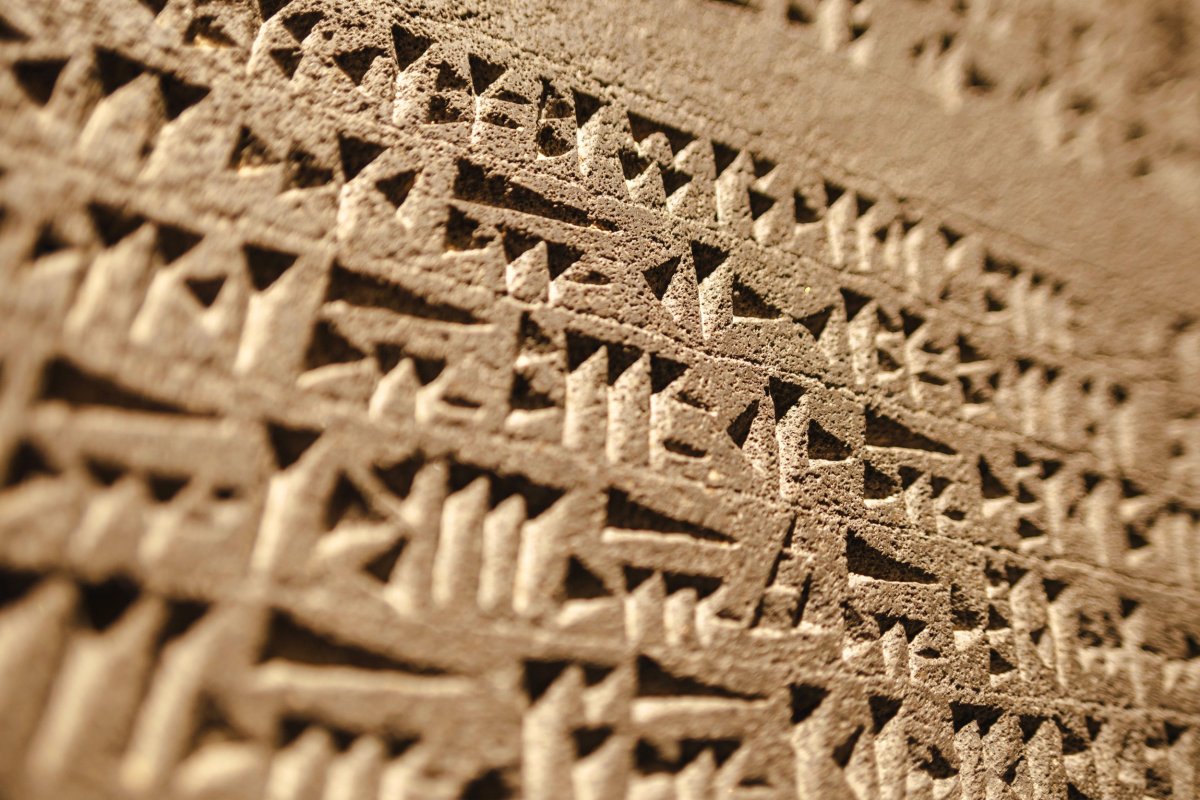Archaeologists have recently discovered a previously unknown ancient language from an ancient tablet during excavations in Turkey.
According to the Julius-Maximilians-Universität Würzburg in Germany, a public research university, the lost language belongs to the Indo-European family, which includes hundreds of related tongues that are all thought to share a single prehistoric ancestor.
Just under half the world's population speaks an Indo-European language, which are native to most of Europe, the Iranian plateau and the northern Indian subcontinent. Some of the most widely spoken Indo-European languages are English, Hindi, Spanish, French, Russian, Portuguese, German, Punjabi and Bengali.
The latest Indo-European language to be identified was discovered thanks to a ritual text inscribed on a tablet at the UNESCO World Heritage Site of Boğazköy-Hattusha in Turkey's northern Çorum province. Boğazköy-Hattusha was once the capital of the Hittite Empire, one of the great powers of the Near East during the Late Bronze Age, the period between roughly 1650-1200 B.C.

Excavations have been taking place at Boğazköy-Hattusha for more than century under the direction of the German Archaeological Institute (DAI).
Around 30,000 clay tablets have been found at the site to date, which have shed light on various aspects of life during the Hittite period, according to the Julius-Maximilians-Universität Würzburg. The tablets contain inscriptions in cuneiform—what is generally considered to be the oldest known writing system. Developed by the ancient Sumerians of Mesopotamia more than 5,000 years ago, cuneiform is a script that was used to write several languages of the ancient Near East.
Most of the inscriptions found at Boğazköy-Hattusha record the extinct Hittite language, which is the oldest attested member of the Indo-European family. Other languages, such as Luwian and Palaic, are also represented at the site.
However, excavations conducted this year, led by professor Dr. Andreas Schachner of the DAI's Istanbul Department, surprisingly uncovered a recitation of a previously unknown extinct language. The language was hidden on a cuneiform tablet containing a ritual text written in Hittite. The Hittite ritual text refers to the lost tongue as the language of the land of Kalašma, an area that likely corresponds to where the towns of Bolu or Gerede in northern Turkey are located today.
"The new language was written in cuneiform," Schachner told Newsweek. "It is the same writing system the Hittites used. The text is part of a longer text starting in Hittite. As it continues it says at one point: 'Continue in the language of the Land [of] Kalašma.'"
"The Hittites were uniquely interested in recording rituals in foreign languages," Daniel Schwemer, head of the Chair of Ancient Near Eastern Studies at Julius-Maximilians-Universität Würzburg, said in a press release.
The recently discovered language remains largely incomprehensible. However, Professor Elisabeth Rieken with the Philipps University of Marburg, Germany, a specialist in Anatolian languages, has confirmed that the Kalasmaic tongue belongs to the Indo-European family, according to Julius-Maximilians-Universität Würzburg.
Earlier this year, researchers announced they had managed to decode an ancient script that scholars had been unable to understand for decades.
In a study published in the journal Transactions of the Philological Society, a team of scientists describe how they partially deciphered the "unknown" Kushan script, an ancient writing system that was once in use in parts of Central Asia between around 200 B.C. and 700 A.D.
Update 09/25/23, 2:14 p.m. ET: This article was updated with additional information from Andreas Schachner and to include another image.

Uncommon Knowledge
Newsweek is committed to challenging conventional wisdom and finding connections in the search for common ground.
Newsweek is committed to challenging conventional wisdom and finding connections in the search for common ground.
About the writer
Aristos is a Newsweek science reporter with the London, U.K., bureau. He reports on science and health topics, including; animal, ... Read more
To read how Newsweek uses AI as a newsroom tool, Click here.








